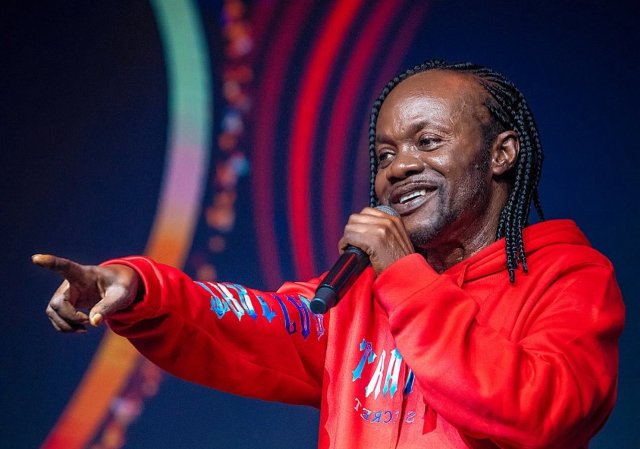A Kumasi High Court has admitted into evidence a video in which the late highlife icon Daddy Lumba, born Charles Kwadwo Fosuh, appears to explain who performed the in-law rites at his late mother’s funeral.
The decision was taken despite fierce objections from lawyers representing Akosua Serwaa Fosuh, who claims to be the legal spouse of the musician. The short video clip—tendered by lawyers for Abusuapanin Kofi Owusu, head of Daddy Lumba’s extended family and first defendant—captured the late musician discussing the role played by his first love, Theresah Abresseh, in performing funeral rites for his mother, Amma Saah.
The clip, labeled DL5, had been referenced earlier during the Case Management Conference and became the subject of intense legal back-and-forth on Monday, November 17, 2025.
Also read: Bagbin rejects claims of disorderly leadership: ‘My Minority caucus’ was disciplined and strategic
Counsel for the plaintiff, lawyer William Kusi, strongly objected to the admission of the video, arguing that:
“The rules of the court do not permit tendering evidence when the plaintiff does not know the source or who authored it. The mere fact that she identifies the person in the video does not give her the capacity to respond to the document.”
He insisted it would be “an injustice” for the court to admit a video whose authenticity, origin, and context remained in dispute.
But presiding judge Justice Dorinda Smith Arthur overruled the objection and admitted the clip as evidence, marking what many observers see as a major turning point in the case.
Upon resumption of cross-examination, the legal attorney for Akosua Serwaa Fosuh, Georgina Osei Bonsu, challenged the integrity of the footage.
She told the court the video had been tampered with and did not align with accounts by either the plaintiff or the late musician’s family:
“The plaintiff’s evidence and the family’s own accounts do not indicate that Theresah Abebresse performed any in-law rites. I have pictures to prove that Akosua Serwaa Fosuh performed the ‘Nseyie’.”
This triggered a swift rebuttal from counsel for the first defendant, Dominic Kwadwo Osei, who suggested that the plaintiff’s alleged refusal to perform the rites caused a rift between her and Daddy Lumba.
“The refusal of the plaintiff to perform in-law rites at the late Amma Saah’s funeral was the beginning of the separation between her and the late musician,” he argued.
He further claimed the emotional pain Lumba endured was the reason he did not attend the plaintiff’s mother’s funeral in January 2018—an assertion the attorney flatly rejected.
Earlier in the sitting, counsel for the first defendant also challenged the validity of the marriage certificate tendered by Akosua Serwaa Fosuh, noting that she previously bore the name Akosua Serwaa Schindler.
He argued the certificate “belonged to another person,” casting doubt on her claim to be the musician’s only surviving wife.
Lawyers for Priscilla Ofori, popularly known as Odo Broni, questioned the attorney about her relationship with the Fosuh family. She recounted meeting Daddy Lumba in the United States in 2003 and later traveling with her children to Germany multiple times to visit the couple.
When asked whether she was present during the couple’s reported 1991 traditional marriage at Bomso and their 2004 civil ceremony in Germany, she responded affirmatively.
The court is expected to rule on aspects of the matter on November 25, 2025, while the daily hearings continue, with cross-examination scheduled to resume on Tuesday, November 18, after an exhaustive seven-hour session.


